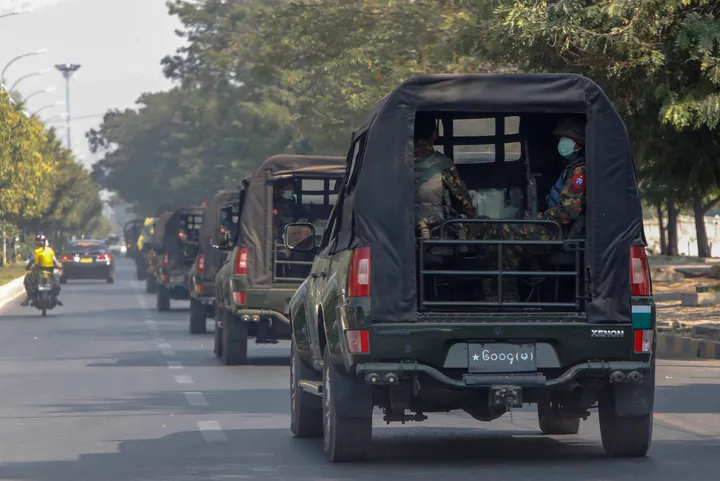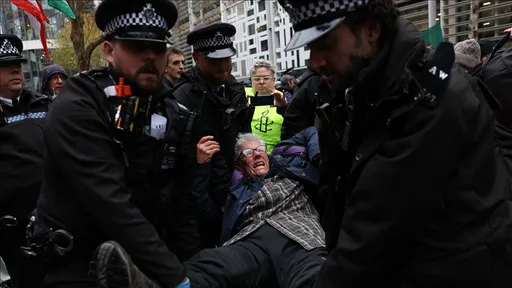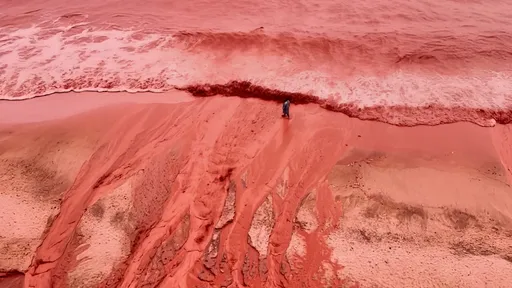The ousting of Robert Mugabe on November 21 was widely celebrated by most Zimbabweans who had known little more than the revolutionary-turned-dictator, who ruled the sub-Saharan country since independence in 1980.
But Mugabe’s departure is also likely to signal the dwindling of a lucrative business that many people have benefited from. Mugabe’s existence had been at the centre of high-level fundraising for groups aligned and opposed to Africa’s longest serving president.
On one side, groups aligned to the ex-president would use his internal clout to raise funds domestically, whereas opposition groups have historically used Mugabe’s anti-Western stance to lure foreign donations from countries such as the UK and the US, in return for their efforts to overthrow Africa’s iconic strongman.
But now that Mugabe is no longer the president of Zimbabwe, both sides of this business now find themselves with no cause. No Mugabe to raise money for or against.
Examples can be drawn from Promise Mkwananzi, the ex-President of the Zimbabwe National Student Union (ZINASU), who built a career and made a living out of his fight against Mugabe. Mkwananzi belonged to a generation that had known no other work except fighting Mugabe. But like many others, he found that the fight against Mugabe could also be a profitable one as foreign governments threw money at Mkwananzi and similar leaders to help force regime change.
However, not all of this money went towards efforts of regime change, with some of those entrusted with funds – like Mkwananzi – devising creative ways of embezzling money for personal profit.
Over the past 17 years, billions of dollars have been poured into Zimbabwe to fund efforts to ensure that Mugabe – the liberator-turned-dictator whose ruinous political and economic policies brought the country to the brink of becoming a failed state – was removed from power.
The money was channelled directly to opposition parties as well as in a roundabout way through a number of non-governmental organisations (NGOs), which the government said at their peak in 2012 numbered more than 3,000, the majority of them with a strong regime-change agenda.
The exact figure of the total amount that went into efforts to push Mugabe from power will never be known because of the discreet nature of these transactions. But it has been suggested by many, including local news outlet, The Standard, that groups in Zimbabwe have received at least $2.4 billion between the years of 2009 and 2012. Most of this money came from the UK and the US.
As the effort to remove Mugabe became protracted, many of those in the anti-Mugabe industry found themselves inexorably addicted to fashionable lifestyles funded by sympathetic foreigners who sincerely wanted to see the democratisation of the Zimbabwean political landscape.
However, many Western governments and donor agencies massively scaled down their funding for Zimbabwe after they were faced with the 2013 election results, which saw Mugabe and his party win by a bigger margin than before, despite their efforts to quash Mugabe’s influence in the country. This was happening against the backdrop of a number of investigations into NGOs that had been accused of failing to account for $850 million-worth of funds released by donors between 2011 and 2014.
“Individuals who cannot provide any meaningful contribution to humanity have found themselves a very lucrative pastime: crying crocodile tears on behalf of the people of Zimbabwe and getting paid for it,” wrote former University of Zimbabwe students leader and veteran human rights campaigner, the late Paul Rumema-Chimhosva, in a scathing 2010 paper entitled "The Corrupt Role of NGOs, Donors and Civil Society in the Zimbabwean Crisis," in which he exposed the mercenary behaviour of his colleagues in the Zimbabwean opposition and civil society.
And for these people running non-profit groups, as long as Mugabe was there and living up to his reputation as one of the most controversial leaders in the world, life was good for them until November 21 when most of them woke up to the sad reality that the man whose name had faithfully put bread on the table for them for many years was no longer there.
Because of Mugabe's stringent smash-and-grab laws that allowed land and company seizures, Mugabe’s name came in handy for extortion purposes for some rogue elements within the ruling party and government, with vulnerable communities like the opposition, white farmers and owners of foreign businesses being the prime targets.
In 2015 an internal ZANU PF investigation revealed that Mugabe’s youths had extorted at least $13 million from various businesses operating in the country in the name of fundraising for his birthday celebration. The scam involved setting up a parallel bank account where most of the cash “donations” extorted from companies were diverted to, leaving the official account to receive a measly $700 000.
“Everyone knew that maligning the name of Robert Mugabe and bad-mouthing Zimbabwe had become a fully-fledged money-making and fame-seeking business venture. Thousands of people benefited from it one way or the other,” wrote writer, Alexander Kanengoni, in a 2015 obituary of fellow writer Chengerai Hove who had died in self-exile in Norway where, for about 15 years, he had enjoyed a monthly $2,000 stipend.
“The system and organisation of the opposition became a cash cow, more so in the post-2000 era when the economy faltered and donor funds constituted a revenue stream. The fights we have seen since 2005 in the (opposition) MDC can be partly attributed to this,” says Tichaona Zindoga, the political editor of Zimbabwe’s largest newspaper, The Herald.
But now with Mugabe no longer in office, and the future of Zimbabwe’s echelons of power unclear, the future of supporting and opposing the regime is uncertain.
























